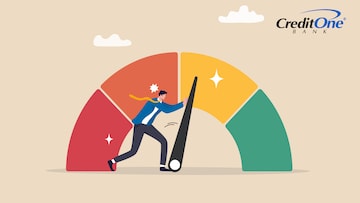
Introduction
You probably know that your credit score is a big deal in your financial life, but you might not know just how deep it goes.
Whether you’re applying for a credit card, renting an apartment, looking for a job or even looking for “the one,” your credit score could open more doors than you ever realized.
What is a Credit Score?
Your credit score is a rating used to determine how likely you are to repay borrowed money. It’s a three-digit number calculated from various factors on your credit report, including payment history, credit utilization, length of credit history, credit mix and recent credit inquiries.
Something called a scoring model is used when calculating your score. The most common ones are FICO and VantageScore, both of which use credit score ranges going from 300 to 850.
Simply put, the higher your score, the better.
Benefits of Having a Good Credit Score
Having a good credit score can bring tangible benefits to your everyday life. And some of them aren’t even directly related to credit!
Let’s explore some of the advantages of having a good credit score.
Easier credit card approval
Besides providing you with instant purchasing power and eliminating the need to carry cash, credit cards may offer other benefits, including rewards, extended warranties, supplemental rental car insurance, travel insurance, and more.
Don’t care about perks? Well, try renting a car or hotel room without a credit card. You may be able to do it with a debit card, if the hotel or rental agency will accept one, but they will also put a hold on your funds, so you can’t use them in the meantime. Otherwise, you’re likely going to have to leave a cash deposit. And even if they take a cash deposit or debit card, some rental car companies may run a credit check on you, which means your credit score could come into play even without a credit card.
Access to higher credit limits and more credit options
“More,” in this instance, means both additional credit products and higher credit lines. A higher credit score makes you look more attractive — as in less risky — to potential lenders, so they may be more inclined to grant you credit.
And it’s not just for credit cards. Your credit score is also a factor in applying for mortgages, auto loans, personal loans, and student loans. And if you are granted credit, a good credit score could mean a larger loan amount or higher credit limit.
Better interest rates and loan terms
Again, a higher credit score makes you more attractive to potential lenders, so they’re more likely to want your business. If you have a good credit score and are extended credit, you may be granted better overall terms, such as no annual fee on a credit card. You’ll also likely get lower interest rates or APR (annual percentage rate).
And a lower interest rate can make a huge difference, even when it’s just by one point. If someone takes out a $100,000 mortgage with a 30-year term and a 6% APR, they can expect to pay $115,838.45 in interest over the life of the loan. At 7% APR, that figure jumps up to $139,510.98, a difference of $23,672.53.
Better job opportunities
According to a survey by the National Association of Professional Background Screeners, about 16% of employers conduct credit report checks on all job candidates, and 31% do so for some. In states where this is legal, the employer will still need your written permission for the check.
While employers can’t check your credit score, they do get a look at a modified version of your credit reports. Since your credit score is based on what’s in your credit reports, it stands to reason that, if you have a good credit score, your credit reports should reflect the responsible credit behavior that earned you that score.
Better chances of getting approved for housing
Even if you’re not looking for a mortgage, your credit score can affect your housing prospects.
Let’s say you’re looking to rent an apartment. Landlords often run credit checks to evaluate how financially responsible a potential tenant is, in addition to other checks like criminal background checks and employment verifications.
A higher credit score can signal that you’re reliable with payments, making you more attractive as a renter. In competitive markets, this can give you an edge over applicants with lower scores.
Better auto loan approval and terms
If you can’t afford to pay for a car in cash, chances are you’re going to need a loan. A good credit score increases your chances of approval and qualifies you for more favorable loan terms, such as lower interest rates or longer repayment periods.
Lower car insurance premiums
In many states, insurers use what’s called a credit-based insurance score to determine premiums. This is a different credit score model than the one mortgage companies or credit card issuers use, instead predicting the likelihood of a customer filing a claim.
Having a better credit score often means paying lower insurance rates, since you’re statistically less likely to make claims.
More attractive to potential partners
A good credit score makes you more attractive to lenders, but there’s a chance it could just make you more attractive.
A Bankrate survey found that 42% of Americans said knowing someone’s credit score could be a determining factor in deciding whether to date them. And four out of five singles in an Experian survey said good credit is attractive.
Even the Federal Reserve found a correlation between higher credit scores and a likelihood to form and maintain long-term relationships.
Sure, you probably shouldn’t take these findings as cause-and-effect. Dating and relationships take work and there isn’t a dating equivalent to getting a pre-approved credit card offer in the mail once you hit a certain credit score.
But financial responsibility is often seen as an indicator of overall stability, which is something many people look for in a partner. Taken as part of the overall picture, how someone handles credit can be useful information.
How to Improve Your Credit Score
Improving your credit score isn’t something that happens overnight, but a few actions and habits can make a big difference.
Pay bills on time
Payment history is the most significant factor in your credit score. Always pay at least the minimum due on time, every time to avoid negative marks on your credit report.
Keep credit utilization low
Your credit utilization ratio is the ratio of your total credit card balances to your total credit limits. Experts recommend keeping this under 30% to help boost your score.
Don’t open too many accounts
Each time you apply for credit, a hard inquiry is made on your report, which can slightly lower your score. Opening many new accounts at once can send a negative signal to lenders, so you’ll want to space out your applications.
Review your credit report for errors
You’re entitled to one free credit report per year from each of the three major credit bureaus, but they’re now available every week at AnnualCreditReport.com,. You can take advantage of this to check for errors — such as incorrect account statuses or fraudulent activity — and dispute any inaccuracies.
Frequently Asked Questions
What is a good credit score range?
Under FICO’s model, a “good” score is the 670 to 739 range. Scores between 740 and 799 are considered “very good,” and 800+ is “exceptional.” VantageScore, another common model, has similar ranges.
Does having a good credit score help with renting?
Yes, most landlords check your credit report during the application process. A good score can make it easier to secure a rental and may even reduce the required security deposit.
How long does it take to improve a credit score?
This depends on the factors affecting your score. You might see modest improvements in as little as one to two months by paying down balances or correcting errors. Significant changes, like recovering from missed payments or bankruptcies, can take six months to several years.
Final Thoughts: Protect Your Financial Future
Your credit score touches on nearly every aspect of your financial life and perhaps even more than that.
By maintaining good credit habits and being proactive about monitoring your credit, you can get all the benefits that come with a strong score. In other words: Good score, good life.
Making consistent, on-time payments to creditors is one of the best ways to help improve your credit score. Need a credit card? See if you pre-qualify for a card from Credit One Bank. It takes less than a minute and checking doesn’t affect your credit score.
Jorge Labrador writes about credit-related topics that often come with a lot of questions, like pre-approvals, credit scores, credit building, and trending advice on social media. He's previously covered healthcare, travel, entertainment and more for nearly two decades. He likes to unwind by painting plastic fantasy miniatures, making a fancy cup of coffee or color-coding his budgeting app (again).




